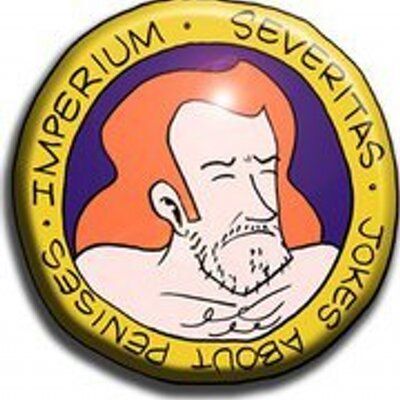

No idea. Maybe it isn’t even a letter?


No idea. Maybe it isn’t even a letter?


It is about expansion. All you need to do to get that copper patch is extend the network from your nearby coal patch and build a station. Whereas you might need many thousands of belts to do the same and you wouldn’t be able to share the existing infrastructure of the coal patch (unless you really like sushi as well as spaghetti).


That explains a lot. I played Grim Dawn and thought that it took a lot of inspiration from Titan Quest, especially the levelling system. Never put 2 and 2 together though.


But 0! is 1.
Swords in stones obviously!


I reckon there is a large overlap between people that share their ship designs here and people that like to use circuit networks which leads to an apparent bias in favour of using circuit networks on ships.


It really depends on the role you are looking for. If working with data and doing analysis, you need some knowledge in stats and probability. If you are working on simulations, you will need basic calculus and algebra. If you are looking at game development, you will need basic trigonometry and vector arithmetic. The one thing you don’t need is mental arithmetic because you have a computer.
That being said, you can get by without these skills, it just becomes harder to see what you need to do, even if you would know how to implement it. This is alleviated if you are working in a team however.


I mean they should be using rfc3339 as it is an open standard unlike the iso.
Depends how much time you spend in a text editor. If it is just for a few config edits and stuff, honestly there is little reason to learn. The real benefit is if you spend a lot of time editing text due to the time saved using more powerful commands. There is the additional benefit that vi/vim is installed on practically any Linux box, so you will almost always have a familiar editor to hand in an unfamiliar environment.
Go through the tutorial. It is quite good and teaches things incrementally with real world examples. Just run vimtutor to start.


Are you running steam in a flatpak by any chance?


You complain about artillery being locked behind space. I complain about cliff explosives being locked behind space. We are not the same.
That is exactly what I do. My ammo processor runs almost non stop and dumps it all into storage up to 1k and the schedule only lets it depart Nauvis at 750 and other planets at 500. The difference here is that the other planets have passive medium asteroids which slows down effective ammo generation, so I would rather be idling at Nauvis if I have to. I tried having less turrets but then bad things happened which set me back a bit…
Yeah, that’s not a bad shout regarding the thrusters. I’ll try that for gen 2. I already use the hub for storage for ammo, iron plates, carbon, ice and iron ore. My first stationary platform also used it to store asteroid chunks, then I learnt that they don’t stack which is why I have a sushi belt for asteroids now.
No but they protect the more expensive stuff if a medium asteroid breaks through which can happen if too many are clumped together. Happens once every 10 trips or so and a wall is far cheaper than an asteroid catcher or turret, especially if you are using quality items.
First thing I tried. Unfortunately you can’t. I considered shaping them in a V pattern, but then you have to cross the pipes which is possible but annoying. I also cut out some foundations to reduce weight by this method. Even though it has 5 engines, it can only sustain thrust for one of them, hence the tanks, so maybe 1 engine is better for frequent trips if you can’t stock up in time (although ammo stockpiles seems to be the bottleneck in my design).


Go get it. It is an amazing game but do not look it up beforehand. It is best played blind.


And not everyone will understand scientific notation unfortunately.
To be fair, we currently have an overpopulation of jellyfish due to both the decline of turtles and raising sea temperatures, so if anything, this is helping.
R